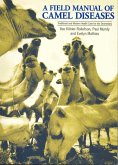The emergence of human immunodeficiency virus (HIV) has led to the growth of co-infection with other illnesses including tuberculosis. Many states are now attempting to address the problems presented with co-infected patients from a variety pathogens. In particular sub-Saharan Africa has suffered exponentially more from HIV and TB co-infection than other parts of the world. Thus, why have Botswana and South Africa not created national health policies to treat these diseases together? The following describes the process of how World Health Organization recommendations are translated into state policy. While donorship and international policy alterations create strong punctuations, the incremental processes continues to determine when policy emerges in a state.
Bitte wählen Sie Ihr Anliegen aus.
Rechnungen
Retourenschein anfordern
Bestellstatus
Storno








